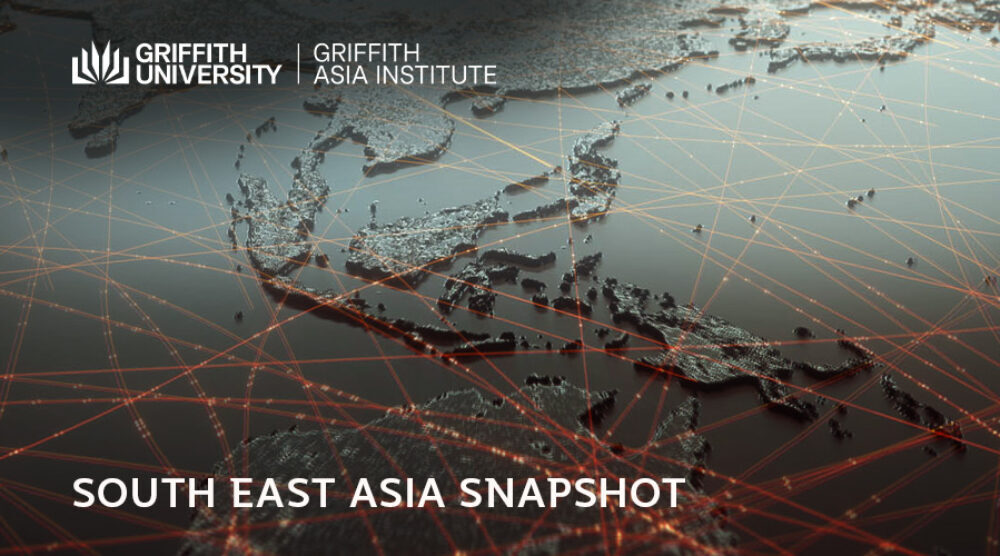Thailand’s ruling party elected Thaksin’s daughter as party leader
Thailand’s ruling party – the Pheu Thai Party – elected Paetongtarn Shinawatra, who is the second daughter of the former Thai prime minister Thaksin Shinawatra as their leader on 27 October 2023.
Paetongtarn Shinawatra was voted into the position with 289 votes and one abstention in a meeting of executives and other members of the Pheu Thai Party. The previous leader – Chonlanan Srikaew – resigned for breaking a pledge that Pheu Thai would not form a government with any military-aligned parties. This election reasserted the overt leadership of the Pheu Thai Party by the Shinawatra family and comes two months after Thaksin returned to the country after 15 years of exile to avoid a jail sentence in 2008.
Prime Minister Srettha Thavisin was among those to congratulate the new party leader while Ms. Paetongtarn pledged to bring the promised policies to reality and stand by the people. She emphasized the need for the new administrative body of Pheu Thai to rejuvenate itself, reclaim its position as the people’s leading choice, and modernize the party towards regaining its prominence. A political analyst Yuttaporn Issrachai says that this result “is an effort to modernize the party, but, in the end, the core of the party is still the same. It belongs to the Shinawatra clan”. The Pheu Thai deputy leader Phumtham Wechayachai defended the move, saying Ms Paetongtarn earned the leadership role because of her qualifications.
With Ms. Paetorntarn as its leader, the Pheu Thai is back under the Thaksin family leadership. Diversification for broad representation is crucial to dilute the public perception of the “Thaksinization” of the Pheu Thai in the long run.
The US, UK, and Canada unveiled new sanctions on Myanmar junta supporters
On 31 October 2023, the United States (US), Canada, and the United Kingdom (UK) imposed new sanctions on the military junta of Myanmar, aiming at weakening its sources of support to Myanmar’s military regime, and reducing its ability to buy weapons.
The US imposed sanctions on Myanma Oil and Gas Enterprise (MOGE), prohibiting Americans from providing, exporting, or re-exporting financial services to MOGE. Moreover, Canada also placed sanctions against the junta while also expanding its prohibition on the sale of aviation fuel to include a ban on shipping insurance for the transportation of aviation fuel to Myanmar. Furthermore, the UK also joined the US and Canada to sanction five individuals and one entity involved in providing financial services to the regime or supplying restricted goods.
The US Secretary of State Antony Blinken urged “the international community to step up action to address the worsening human rights, humanitarian, political, and economic crisis in Burma” while this new round of sanctions received applause from the UN human rights expert and opponents of the junta government. The Canadian government states “these additional measures come as part of a broader strategy seeking to exert coordinated, sequenced, and targeted pressure on the Myanmar regime while mitigating adverse impacts on civilians.” Some viewed the sanctions as important steps forward with the ban hitting the junta’s largest resource revenue. Despite these sanctions, the junta did not respond to any comment requests.
The sanctions will further weaken the junta’s sources of revenues. However, this is not enough; continuous cooperations from ASEAN and the international community are imperative to choke Myanmar junta’s stability effectively.
Singapore’s Prime Minister to step down before the next general election
On 5 November 2023, Singaporean Prime Minister (PM) Lee Hsien Loong announced his plan to relinquish his leadership responsibility in the ruling People’s Action Party (PAP) before the 2025 general election.
The role will be handed over to his deputy Prime Minister (DPM) Lawrence Wong and the transition will happen by the party’s 70th birthday next year. Wong was picked by PAP as the likely successor to Lee after then Finance Minister Heng Swee Keat, who was earlier tipped to succeed Lee, withdrew his nomination. Lee will support the new Prime Minister in any way he can, including helping Lawrence to fight and win the next general election. Wong had proved himself to be capable as the head of government during Singapore’s battle against COVID-19. Under his leadership, Singapore achieved one of the world’s lowest rates of illness and death making him the right person for the Prime Ministerial role.
PM Lee said he has “full confidence in Lawrence and his team and there’s no reason to delay their political transition” while Wong said the party has a “clear roadmap for what we need to do and how the PAP government can work with our people to help Singapore succeed” and he is ready for the next assignment. Walid Jumblatt Abdullah, a political scientist at Nanyang Technological University, said “the safer thing to do for the party would be for Lee to hand over after the general election and give Wong time to build rapport with the electorate” while Bilveer Singh of National University of Singapore believed “the next general election is not about Lawrence Wong or Lee Hsien Loong; it’s about the PAP remaining not just in power, but dominant.”
PM Lee’s planned leadership transition to DPM Lawrence Wong before the 2025 election signalled political continuity in Singapore. However, Lawrence Wong will have to win the people’s hearts to sustain the PAP dominance in the next election.
Sovinda Po is a Research Assistant at the Griffith Asia Institute.








